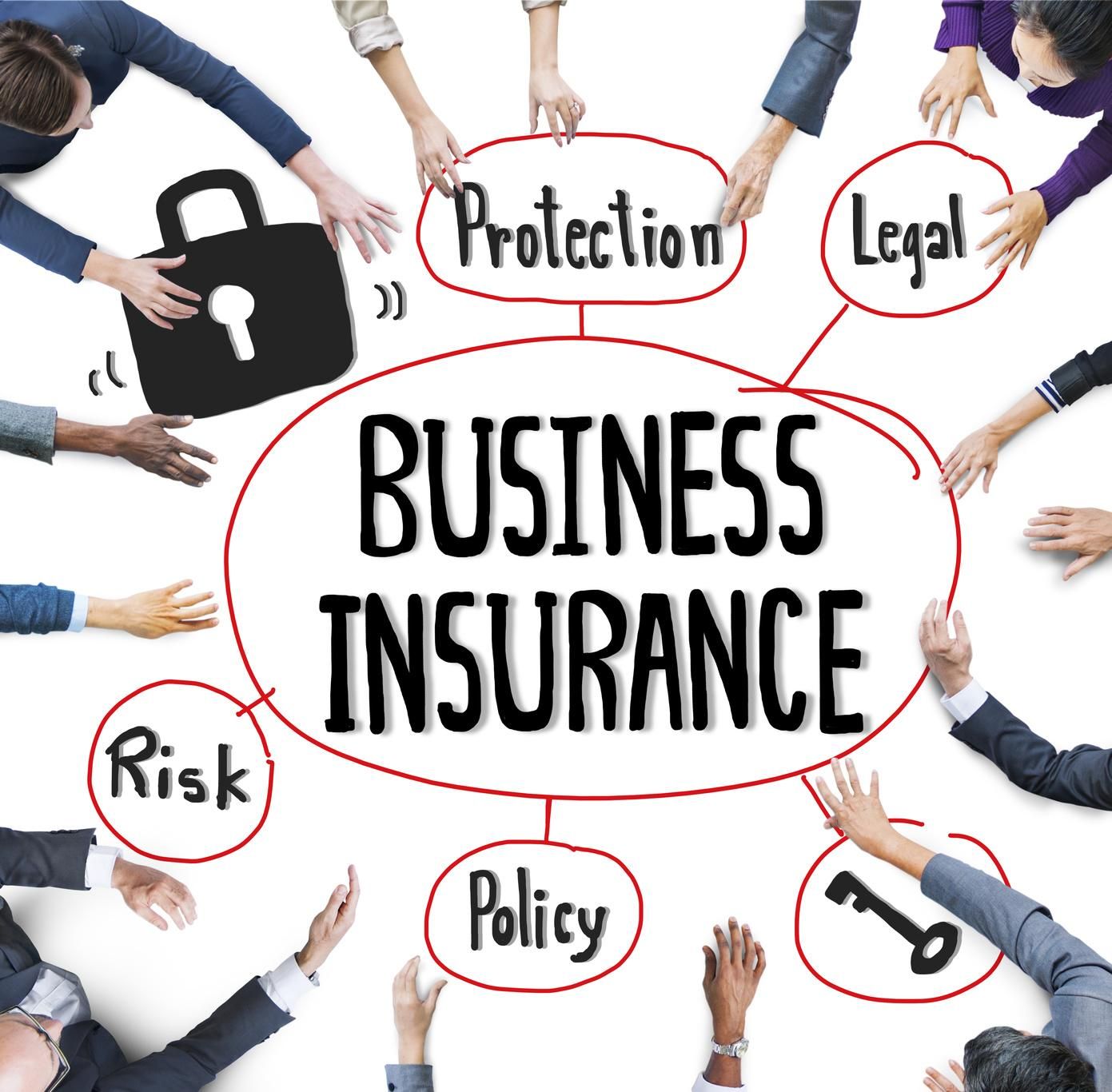Insurance Coverage For Small Business

Starting and running a small business is an exciting journey, but it comes with its fair share of risks and challenges. One crucial aspect that every small business owner should prioritize is insurance coverage. Insurance acts as a safety net, protecting your business from potential financial losses and ensuring its long-term stability. In this comprehensive guide, we will delve into the world of insurance coverage for small businesses, exploring the different types, their benefits, and how to navigate the process effectively.
Understanding the Importance of Insurance for Small Businesses

Small businesses, despite their size, face a myriad of risks that can impact their operations and success. From unexpected accidents and natural disasters to legal liabilities and cyber threats, the potential pitfalls are numerous. Insurance coverage serves as a vital tool to mitigate these risks and provide financial protection when faced with unforeseen circumstances.
Consider the following scenarios:
- A fire breaks out in your office, causing extensive damage to your equipment and inventory.
- A customer slips and falls in your retail store, leading to a costly liability claim.
- A data breach compromises your customers' sensitive information, resulting in legal repercussions.
- A key supplier experiences a production delay, disrupting your supply chain and causing financial losses.
In each of these situations, insurance coverage can be the difference between a minor setback and a devastating blow to your business. It ensures that you have the financial resources to recover, rebuild, and continue operating, safeguarding your business's future.
Types of Insurance Coverage for Small Businesses

The insurance landscape for small businesses is diverse, offering a range of coverage options tailored to specific needs. Understanding these options is crucial to ensure your business is adequately protected.
General Liability Insurance
General liability insurance is a fundamental coverage that every small business should consider. It provides protection against third-party claims arising from bodily injury, property damage, or personal and advertising injury. This coverage is essential for businesses that interact with customers, clients, or the public in any capacity.
For instance, if a customer trips over a loose cable in your office and sustains an injury, general liability insurance would cover the medical expenses and potential legal fees associated with the claim. It offers peace of mind, knowing that your business is protected from unexpected liability risks.
Property Insurance
Property insurance is designed to safeguard your business’s physical assets, including buildings, equipment, inventory, and other valuable possessions. It covers losses resulting from various perils, such as fires, storms, vandalism, and theft.
Imagine a severe storm hits your area, causing significant damage to your warehouse and its contents. Property insurance would step in to reimburse you for the repairs and replacement costs, ensuring your business can quickly resume operations without incurring excessive financial burdens.
Business Interruption Insurance
Business interruption insurance is a critical coverage that steps in when your business operations are disrupted due to covered perils. It provides financial support to cover lost income and ongoing expenses during the period of interruption, helping your business stay afloat until it can fully recover.
Let's say a cyberattack shuts down your online business for several weeks. Business interruption insurance would compensate you for the revenue you would have earned during that time, as well as cover additional expenses like temporary relocation costs or the salaries of your employees.
Professional Liability Insurance (Errors and Omissions)
Professional liability insurance, also known as errors and omissions (E&O) insurance, is tailored for businesses that provide professional services. It protects against claims arising from alleged negligence, errors, or omissions in the services provided.
Consider a scenario where a client sues your consulting firm, alleging that your advice led to significant financial losses. Professional liability insurance would cover the legal defense costs and any potential damages awarded, safeguarding your business's reputation and financial stability.
Cyber Liability Insurance
In today’s digital age, cyber threats are a growing concern for businesses of all sizes. Cyber liability insurance provides protection against the financial losses and legal liabilities associated with cyberattacks, data breaches, and privacy violations.
A small online retailer may fall victim to a cyberattack, resulting in the theft of customer data. Cyber liability insurance would cover the costs of notifying affected individuals, providing credit monitoring services, and addressing any legal claims arising from the breach.
Workers’ Compensation Insurance
Workers’ compensation insurance is mandated by law in most states and provides coverage for employees who suffer work-related injuries or illnesses. It covers medical expenses, lost wages, and rehabilitation costs, ensuring your employees receive the necessary support while protecting your business from potential lawsuits.
If an employee sustains an injury while operating heavy machinery in your factory, workers' compensation insurance would take care of their medical bills and provide income replacement during their recovery period.
How to Choose the Right Insurance Coverage for Your Small Business
Selecting the appropriate insurance coverage for your small business involves careful consideration of your unique needs and risks. Here are some key steps to guide you through the process:
Assess Your Risks
Start by conducting a thorough risk assessment of your business. Identify the potential hazards and liabilities specific to your industry, location, and operations. Consider factors such as customer interactions, property ownership, data handling, and regulatory compliance.
For example, if you own a restaurant, you may face risks related to food safety, customer injuries, and liquor liability. On the other hand, a technology startup may prioritize cyber liability insurance due to the sensitive data it handles.
Understand Your State’s Insurance Requirements
Different states have varying insurance requirements for small businesses. Familiarize yourself with the mandatory coverages in your state, such as workers’ compensation insurance or commercial auto insurance if your business owns vehicles.
Research the specific regulations and guidelines set by your state's insurance department to ensure compliance and avoid potential penalties.
Seek Expert Advice
Consulting with an insurance professional or broker who specializes in small business insurance can be invaluable. They can provide tailored recommendations based on your business’s unique needs and help you navigate the complex insurance landscape.
An insurance expert can assess your risk profile, guide you through the available coverage options, and assist in securing competitive rates. Their expertise ensures that you receive comprehensive protection without overspending on unnecessary coverages.
Compare Insurance Providers and Policies
Once you have identified the types of insurance coverage you require, it’s essential to shop around and compare different providers and policies. Obtain quotes from multiple insurers and carefully review the coverage details, exclusions, and policy limits.
Consider factors such as the insurer's financial stability, claims handling reputation, and additional benefits or discounts they may offer. Look for policies that provide adequate coverage at a competitive price while ensuring ease of claims processing.
Bundle Your Insurance Policies
Bundling multiple insurance policies with a single insurer can often result in cost savings and streamlined management. Many insurance providers offer package deals or business owner’s policies (BOPs) that combine general liability, property, and other essential coverages into a single policy.
Bundling not only simplifies your insurance portfolio but can also lead to discounts and improved coverage limits. It's worth exploring the bundling options available to maximize your insurance value.
Maximizing Your Insurance Coverage: Best Practices
Once you have secured the appropriate insurance coverage for your small business, it’s important to actively manage and optimize your policies to ensure they remain effective and aligned with your business’s evolving needs.
Review and Update Your Policies Regularly
Business landscapes are dynamic, and your insurance coverage should reflect any changes or growth in your operations. Review your policies annually or whenever significant changes occur, such as expanding your product line, hiring additional employees, or moving to a new location.
Regular policy reviews allow you to identify gaps in coverage, adjust limits to reflect increased risks, and ensure that your insurance remains up-to-date and relevant to your business's current state.
Understand Your Policy Exclusions and Deductibles
Insurance policies often come with exclusions, which are specific risks or situations that are not covered. It’s crucial to carefully review and understand the exclusions in your policies to avoid any surprises when filing a claim.
Additionally, familiarize yourself with the deductibles associated with each policy. Deductibles are the amount you must pay out of pocket before the insurance coverage kicks in. Understanding your deductibles can help you budget effectively and manage your financial exposure.
Implement Loss Prevention Measures
While insurance provides financial protection, it’s always better to prevent losses in the first place. Implement loss prevention measures tailored to your business’s unique risks. This can include investing in security systems, conducting regular employee training, and implementing robust data protection protocols.
By reducing the likelihood of losses, you not only minimize the need for insurance claims but also enhance your overall risk management strategy.
Keep Accurate Records and Documentation
In the event of a claim, having accurate and organized records can expedite the claims process and increase your chances of a successful outcome. Maintain detailed records of your business assets, inventory, and financial transactions.
Additionally, keep copies of important documents, such as insurance policies, certificates of insurance, and any supporting evidence related to your business operations. These records will be invaluable when working with your insurance provider to resolve claims.
Stay Informed About Industry Trends and Changes
The insurance landscape is constantly evolving, with new risks emerging and coverage options changing. Stay informed about industry trends, emerging threats, and any updates to insurance regulations that may impact your business.
Subscribe to industry publications, attend relevant conferences or webinars, and engage with insurance professionals to stay abreast of the latest developments. This knowledge will help you make informed decisions and ensure your insurance coverage remains robust and relevant.
FAQs

How much does insurance coverage cost for small businesses?
+The cost of insurance coverage for small businesses varies based on several factors, including the type of business, its size, location, and the specific coverages chosen. On average, small businesses can expect to pay between 500 to 2,000 annually for general liability insurance. However, the cost can be higher or lower depending on the risk profile and coverage needs. It’s essential to obtain multiple quotes and compare policies to find the best fit for your business.
Do I need to purchase all the insurance types mentioned above?
+The insurance types mentioned cover a wide range of potential risks, but not all businesses require every type of coverage. Assessing your unique risks and consulting with an insurance professional can help you determine which coverages are essential for your business. Some businesses may only need a few basic policies, while others may require a more comprehensive approach. It’s crucial to tailor your insurance portfolio to your specific needs.
Can I get insurance coverage for my home-based business?
+Yes, home-based businesses can obtain insurance coverage specifically designed for their unique needs. Home-based business insurance policies typically include general liability coverage to protect against third-party claims, as well as coverage for business-related property and equipment. It’s important to review your existing homeowners or renters insurance policy to understand any limitations or exclusions related to home-based business activities. Consulting with an insurance professional can help you navigate the specific requirements for home-based business insurance.
What happens if I don’t have the required insurance coverage for my small business?
+Failing to have the required insurance coverage for your small business can have serious consequences. If a covered event occurs, you may be personally liable for the resulting damages and losses. This can lead to financial ruin and legal issues. Additionally, not having the necessary insurance coverage may impact your ability to secure contracts, obtain financing, or even comply with legal requirements. It’s essential to prioritize obtaining the appropriate insurance coverage to protect your business and your personal assets.
How can I save money on insurance premiums for my small business?
+There are several strategies to help you save money on insurance premiums for your small business. First, shop around and compare quotes from multiple insurers to find competitive rates. Consider bundling your insurance policies with a single provider to take advantage of package deals and potential discounts. Implementing loss prevention measures, such as installing security systems or conducting regular employee training, can also reduce your risk profile and lead to lower premiums. Additionally, maintaining a strong credit score and a clean claims history can positively impact your insurance rates.
Insurance coverage is an essential aspect of small business ownership, providing the necessary protection against a wide range of risks. By understanding the different types of insurance, assessing your unique needs, and implementing best practices, you can ensure your business is adequately protected. Remember, insurance is an investment in your business’s future, offering peace of mind and the resilience to overcome unexpected challenges.



